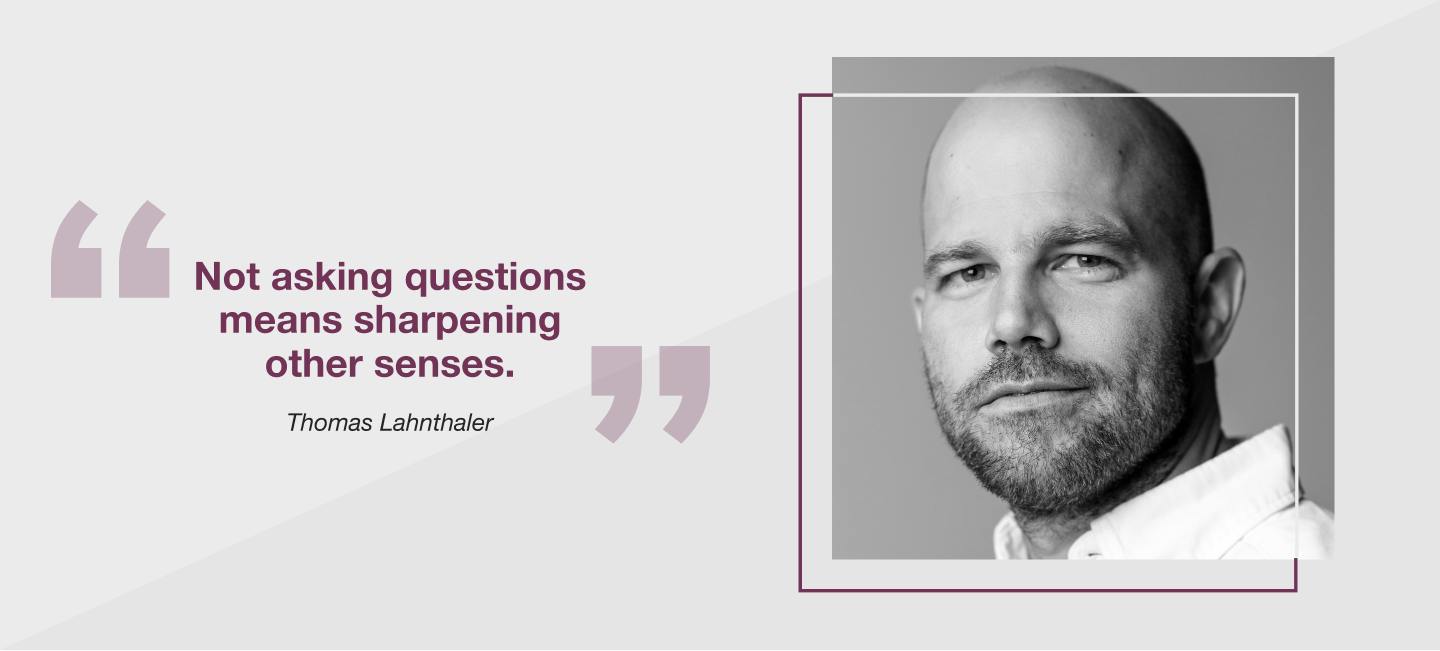Episode 039
December 18, 2019
039 – What if we stopped asking questions? – with Thomas Lahnthaler

Sign up to download the free 1-page summary.
Intro
On episode 039, I speak with Thomas Lahnthaler, co-founder of Groundwork, who worked in the field of conflict and crisis resolution and now applies his learnings and expertise to executive training and workshops.
On our way to the core topic – facilitation without questions – we touch many other themes, such as conflicts inside the workshop space and how we can effectively deal with them. We also speak about the relevance of psychological safety and how to create and maintain it and what to do if you realise that an exercise is not working in the way you expected it.
Thomas learned the art of not asking questions from experiencing a traditional conflict resolution ritual in the North of Australia. There, he realised the frustrating and empowering effect of taking away the tool. Since then, Thomas and his team use the technique for multi-day leadership training to help participants sharpen other senses and self-reflect in a new way.
Don’t miss the part when Thomas and I brainstorm on how to adjust the technique of not asking questions to a mini-version that can be used as an exercise.
Don’t miss the next show: sign up to my newsletter and subscribe to the show through your podcast player.
Feeling inspired by the conversation in this episode? We can have our own – take a seat at my virtual table as part of a Mastermind Group.
A huge thank you must go to SessionLab, the sponsor of Workshops Work. Claim your free two months of SessionLab Pro now – this deal is exclusive to Workshops Work listeners!
.
Questions and Answers
2:30 What is your story? How did you get from development aid and conflict management to facilitation?
5:22 In a nutshell, what have you learned from conflict management on the ground that you apply in trainings and workshops?
6:49 How do you get participants to open their minds and listen to different perspectives in emotionally loaded situations?
10:57 How do you facilitate the situation in which participants can show their emotions and anger and how can you deal with that afterwards?
13:13 To what extent would you debrief an emotional situation?
15:07 According to you, what is the difference between inviting participants to do something instead of giving them permission or asking them?
21:42 What if we took away the tool of asking questions? And, why would we do that?
30:42 What was the topic of the multi-day workshop in which participants couldn’t ask questions?
33:31 Could you think of a mini version of the technique that one can use in a one day workshop?
37:46 How do you deal with a participant who wants to take over control and coordinate the group process?
39:25 How much time would you allocate to such an exercise?
43:04 What makes a workshop fail?
45:38 When you say pre-talk, with whom would you have these pre-talks?
50:00 When the facilitator shows vulnerability, the group can either react with appreciation or blame. What is the differentiating factor according to you?
54:43 What is the nugget to take away from our conversation?
Links
Thomas business page: https://www.groundwork.no/
Our sponsor Session Lab – An online agenda builder and exercise library
Rein Sevenstern from Experiential Learning – This episode’s featured SessionLab user
Connect to Thomas
on LinkedIn
